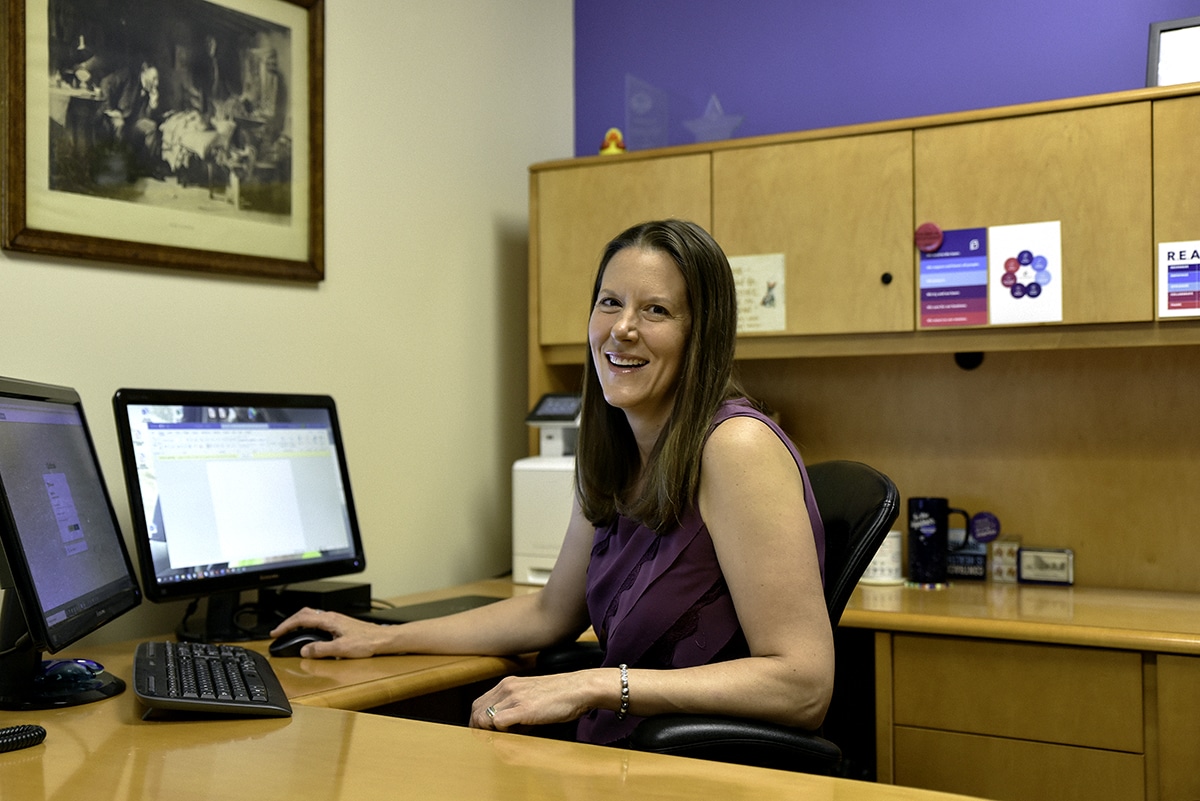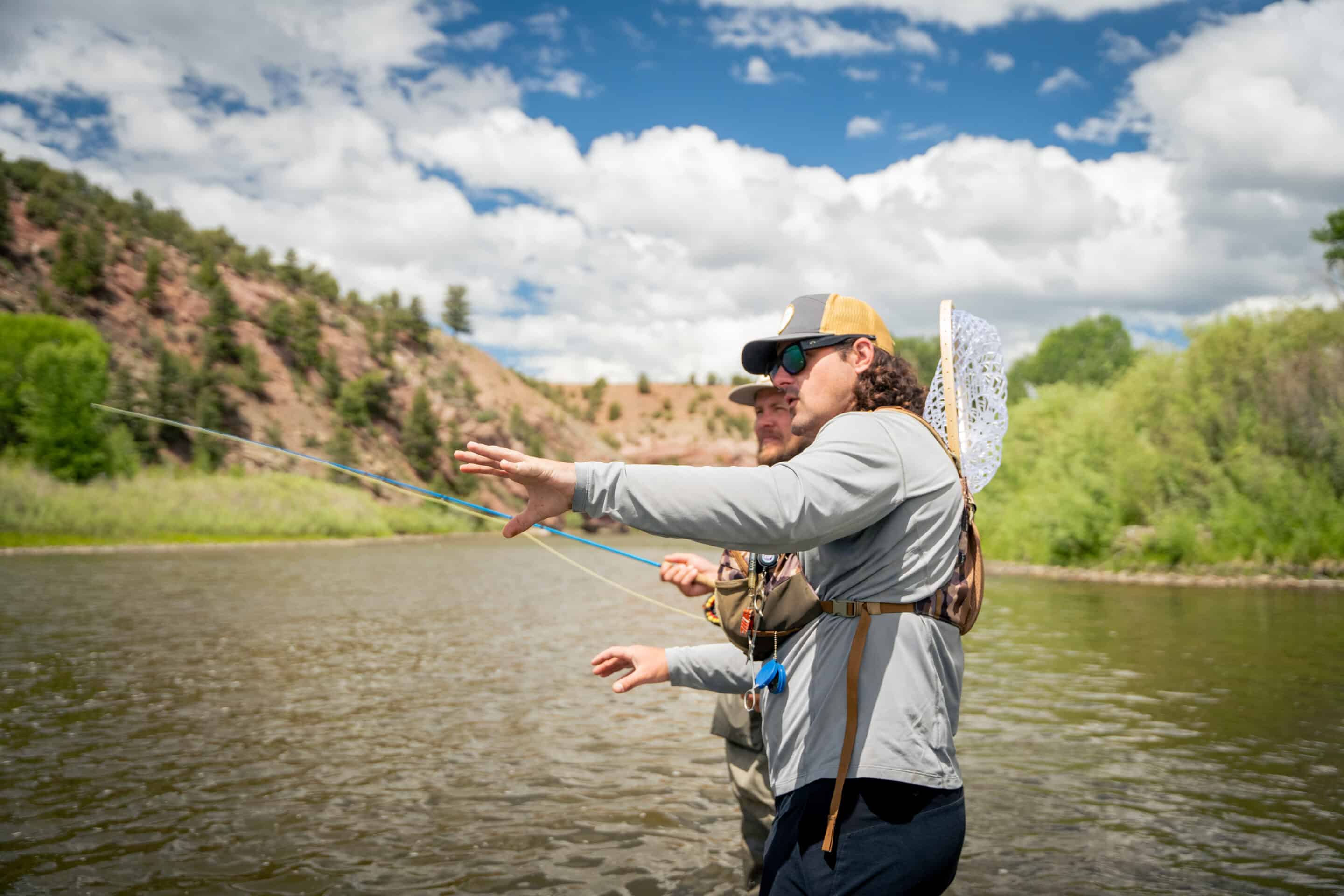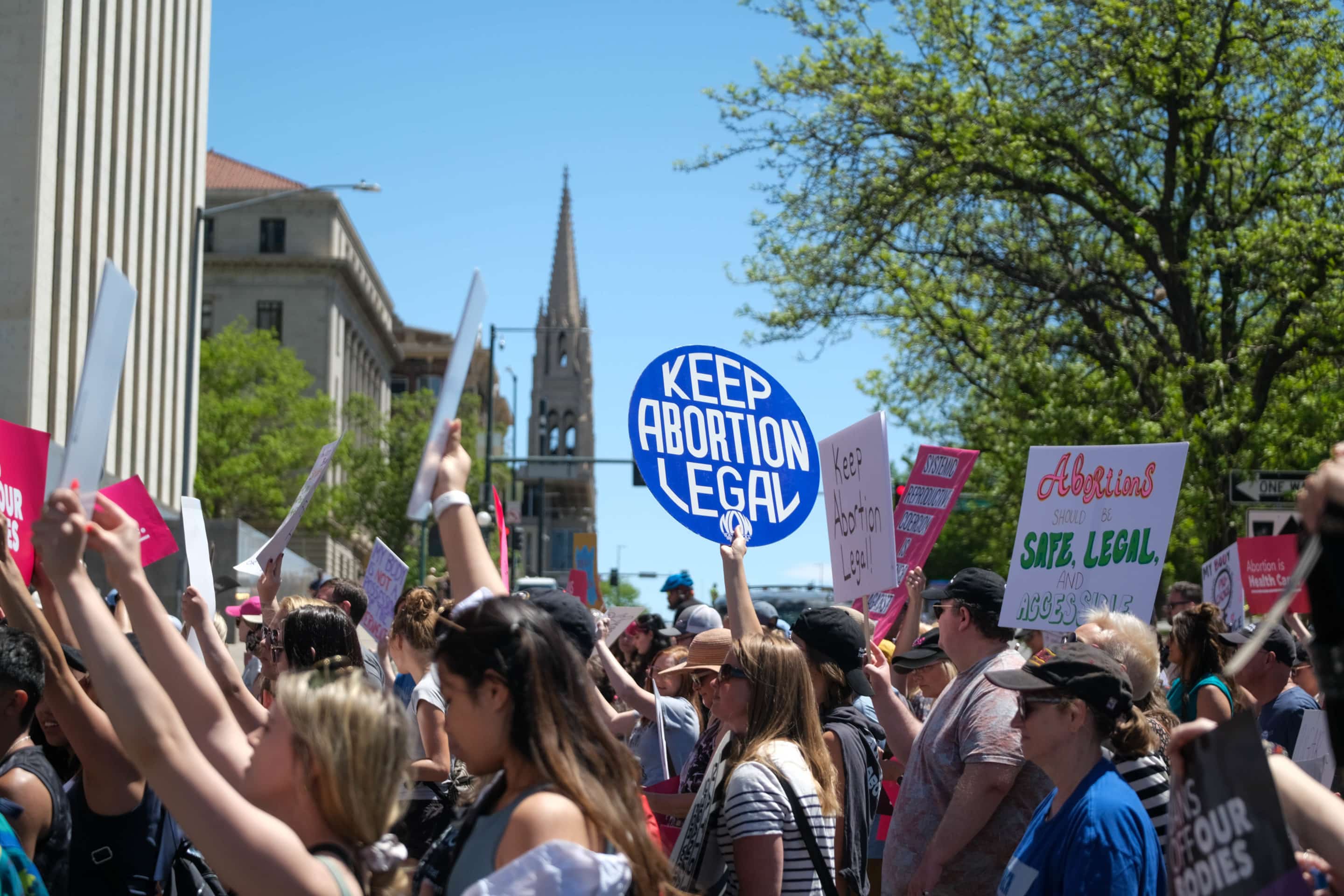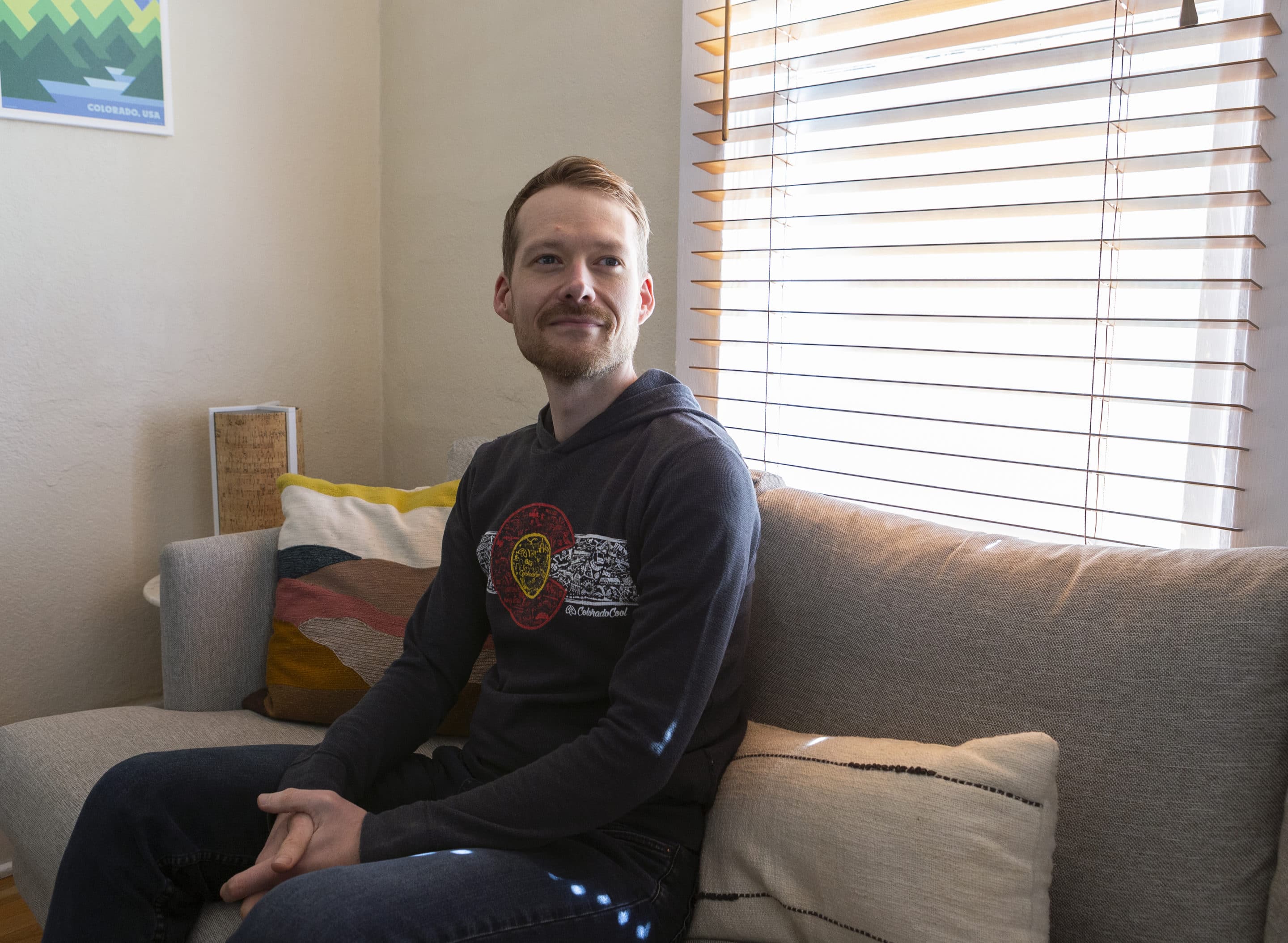//Dr. Kristina Tocce sits inside her Planned Parenthood office on June 23. Having worked as an OBGYN for 20 years, Dr. Tocce is the vice president and medical director at Planned Parenthood of the Rocky Mountains. Photo by Madeleine Kelly | [email protected]
Six years before Roe v. Wade protected the right to an abortion, Colorado became the first state in the nation to loosen restrictions on the procedure. Fifty-four years later though, a slew of anti-choice bills are jeopardizing the right to safe, legal abortion for Americans and Coloradans alike who seek reproductive healthcare.
An upcoming U.S. Supreme Court case from Mississippi is challenging the 1973 ruling’s federal jurisdiction. If overturned, this form of healthcare will be left to the states. While many are already in the process of preparing to further limit access to or even ban abortions altogether, Colorado is holding firm to its defense of the right to choose.
“It is extremely likely that the court is going to rule unfavorably in that case and either completely overturn Roe or really gut it, undermine it and make it worthless,” said Jack Teter, regional director of government affairs at Planned Parenthood of the Rocky Mountains. “There’s going to be millions of people—25 million people of reproductive age who might become pregnant—that are going to live in states that make abortion impossible to access.”
In fact, Planned Parenthood clinics in Colorado saw a 1,200% increase in Texas patients during COVID-19, according to Teter. In Utah and Idaho, along with nine other states, trigger laws are already in place to automatically ban abortion in the first and second trimesters if Roe v. Wade were overturned.
“I’m going into my 20th year now of providing abortion care,” said Dr. Kristina Tocce, vice president and medical director of Planned Parenthood of the Rocky Mountains. “Many of my colleagues are the same in terms of experience. We’ve taken care of many patients over the years and have seen so much, but we have never seen or felt this level of threat before in terms of being able to provide essential medical care to our patients.”
The Mountain West states of Montana, Idaho, Wyoming, Colorado, Utah, New Mexico, Arizona and Nevada are notorious for sweeping the spectrum on abortion access. Eyes are turning to Colorado, a so-called “safe haven” for its progressive abortion politics. Colorado abortion clinics take in an impressive amount of out-of-state patients and experts project numbers to only skyrocket if Roe v. Wade were overturned.
“Colorado will be even more needed by women in surrounding states,” said Jennifer Hendricks, professor of law at University of Colorado.
Roe v. Wade had its sharpest teeth removed in 1992 with the Planned Parenthood v. Casey decision, which allowed states to implement abortion restrictions that apply during the first trimester of pregnancy. Hendricks said the case made abortion inaccessible to huge numbers of women across the nation. The current question is whether this will continue to become more extreme.
Hendricks said discussions of extraterritorial criminal laws against abortion have made their way into legal literature. Similar to criminal laws against sex tourism involving children, where the crime regardless of location is punishable by law, some states are likely to adopt laws that criminalize leaving the state in order to seek an abortion post-Roe. If implemented, this would mean that if a Texas woman received an abortion in Colorado, she could still be tried in Texas.
It is estimated that more than 4,000 women are denied abortions every year to gestational limits. These limitations—the point in time where abortions are no longer legally allowed—are influenced by the Hyde Amendment and state laws. As more states restrict abortion access, thousands more will be affected.
According to The Turnaway Study, which followed the lives of 1,000 women who sought abortions over a five-year time span, women who were denied an abortion were almost four times as likely to be below the federal poverty line and three times as likely to be unemployed after giving birth. They were also more likely to stay in contact with violent partners, putting themselves and their children at greater risk than those who received an abortion. For the women who were able to terminate unwanted pregnancies, 95% reported that abortion was the right decision for them.
After Colorado became the first state to decriminalize abortion in cases of rape, incest or if the woman’s physical or mental health was at risk, the landmark decision continues to influence the state’s abortion access policies—but that doesn’t mean it still isn’t challenged year after year. And, if Roe v. Wade is overturned, the court’s decision will not affect Colorado’s standing access to abortion.
“We had a prequel to this that we felt very directly in Colorado this past election season with Proposition 115,” Tocce said. “We went through that as abortion providers and that was just terrifying to know that individuals with no medical training, no experience with patients, could make a procedure not accessible to patients any longer.”
The bill was ultimately defeated with almost 59% of the vote. Tocce saw it as a reaffirmation that, “in Colorado, we don’t stand in the way of healthcare.”
The Center for Reproductive Rights projects that while abortion will remain legal in liberal-leaning states, it will still be under threat in places like Colorado, New Hampshire, New Mexico and Virginia if Roe v. Wade is overturned. This is because even though there are not many restrictions, legal protections aren’t explicit.
However, legality doesn’t always mean accessibility. Delivery models like medication abortion and Telehealth appointments have increased access to abortion care exponentially. But barriers placed on rural, low income and other minority communities still reign. For example, the Hyde Amendment bans federal government health insurance plans from covering abortion, affecting individuals anywhere from those in the military to public school teachers.
Under the reigning Hyde Amendment, those without private insurance are forced to shell out between $375-$600. However, these figures don’t account for the travel needed to enter a state where the procedure is legal. Organizations like Cobalt Abortion Fund are working to meet this need not only through providing patients with the funds for the procedure but also covering any additional related expenses.
“Every patient is coming from a different place and every patient’s journey is their individual journey,” Tocce said. “Every abortion that I have provided in my career, and I think I speak for my colleagues, has been an absolutely necessary abortion. I am so thankful that I live in a state where I’m able to provide basic healthcare. Abortion care is basic healthcare that everyone should be able to access.”
The justices, which currently sit at a 6-3 conservative majority, will hear the Mississippi case next October. A decision is likely to be made the following spring or early summer of 2022.
Enjoyed this story? Help us keep the lights on! Supporting local press ensures the stories you want to read keep coming, become a member for free today! Click here.





0 Comments